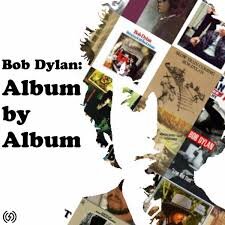Blood on the Tracks Pt. 1-5 (from the podcast 'Bob Dylan: Album by Album')
A musical comb through one of rock history's classics
Radio host Ben Burrell is the maker of the podcast 'Bob Dylan: Album by Album', the ambition of which to create an 'audio essay' on each of Bob's 38 studio albums. Some of them, however, are so epic and complex that they require more attention than a single episode, and that includes 'Blood on the Tracks' from 1975, which according to Burrell is the best Dylan album of all time.
Burrell dives into the album across 5 podcast episodes that are bound together with the overarching narrative that 'Blood on the Tracks' is a concept album that in its entirety represents a breakup in all its phases, from denial to acceptance. Burrell discusses this hypothesis most notably in episode 3 which focuses on whether the album is really about Dylan's divorce from his ex-wife Sarah, or whether – as Dylan himself has claimed – it's a work of pure fiction inspired by the short stories of author Anton Checkov.
The podcast series is conceptually consistent, with Burrell's well-placed and well-prepared monologue at its center, but varied in its soundscape, with clips from live concerts and sequences in which Burrell deconstructs selected chords using his own guitar. Regularly and seamlessly, the songs from 'Blood on the Tracks' are woven into the soundtrack, in the form of short clips highlighting a piece of Dylan's lyrics, or longer stretches of music that allow new listeners of the album to get an impression of the album's soundscape. Sometimes it's hard to keep track of which song Burrell is referencing, but this slight disorientation is balanced out by a constant dosing of both fun and crucial facts about the music – from the fact that the opening track 'Tangled up in Blue' is a reference to Joni Mitchell's album 'Blue', which Dylan was absorbed by, to the less flattering story that the entire album is recorded by musicians that Dylan recruited spontaneously and never paid cash nor credits.
Listen to the podcast series here or in your podcast app









Gripping tales about The Smiths' biggest hit